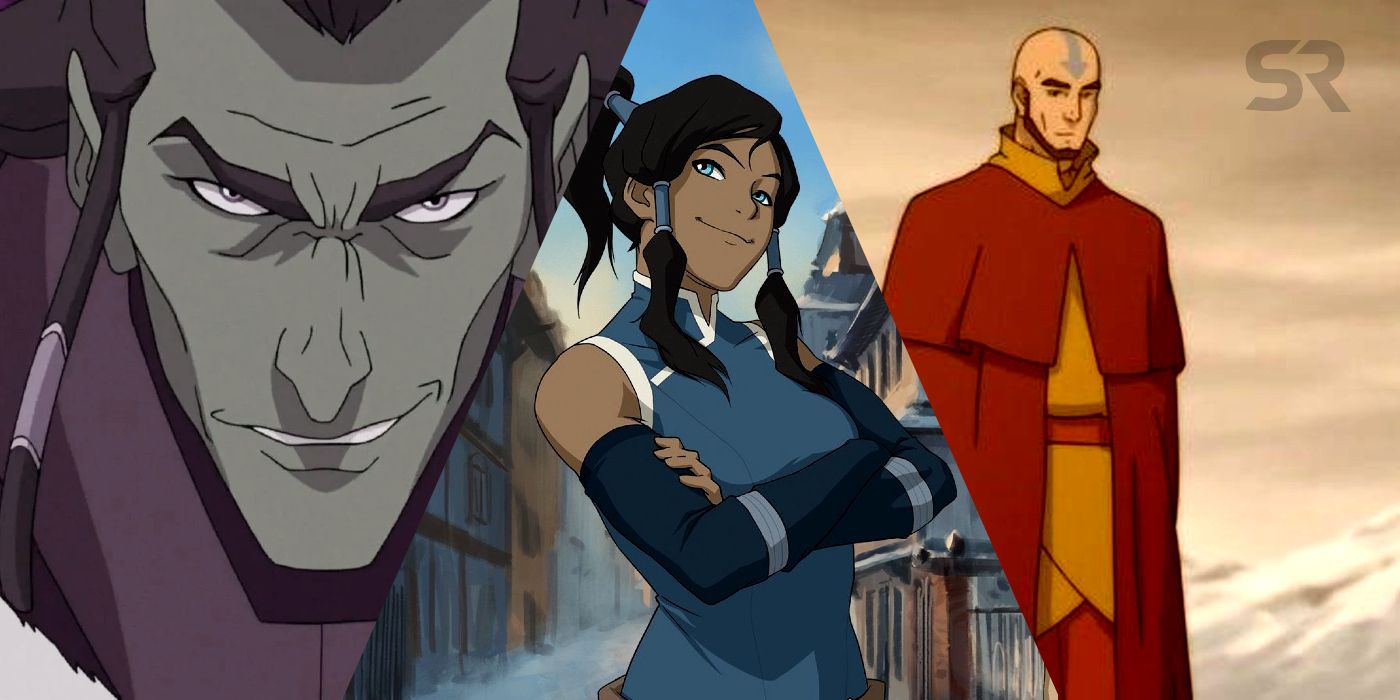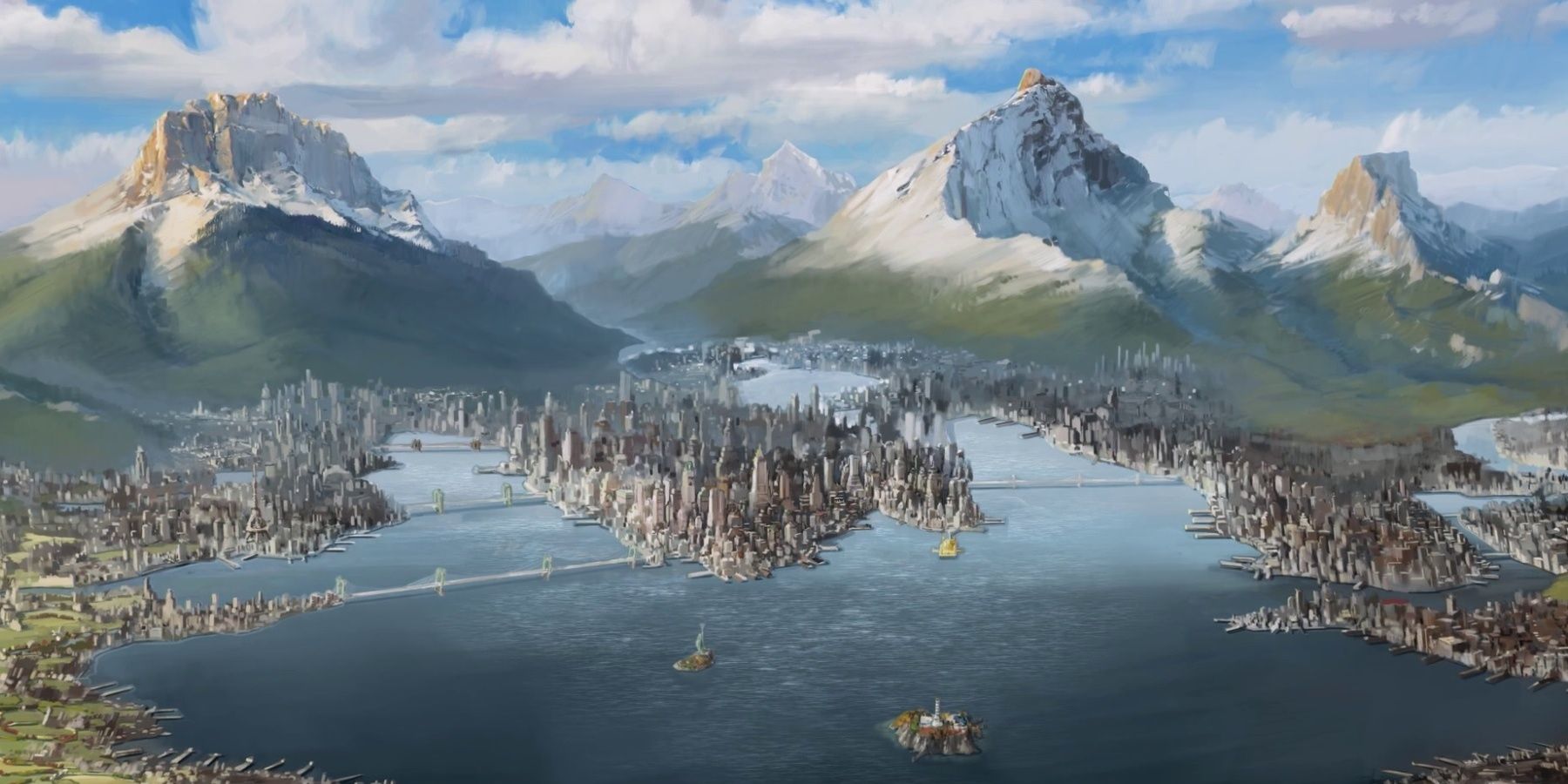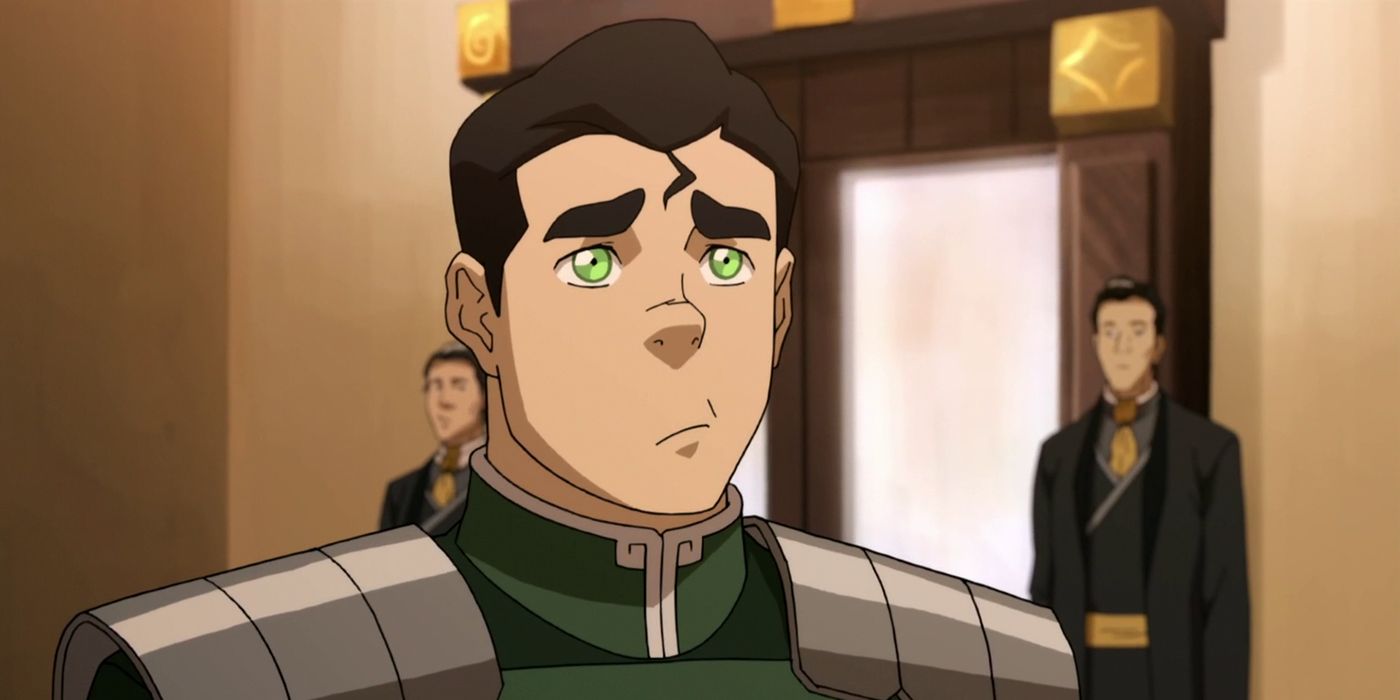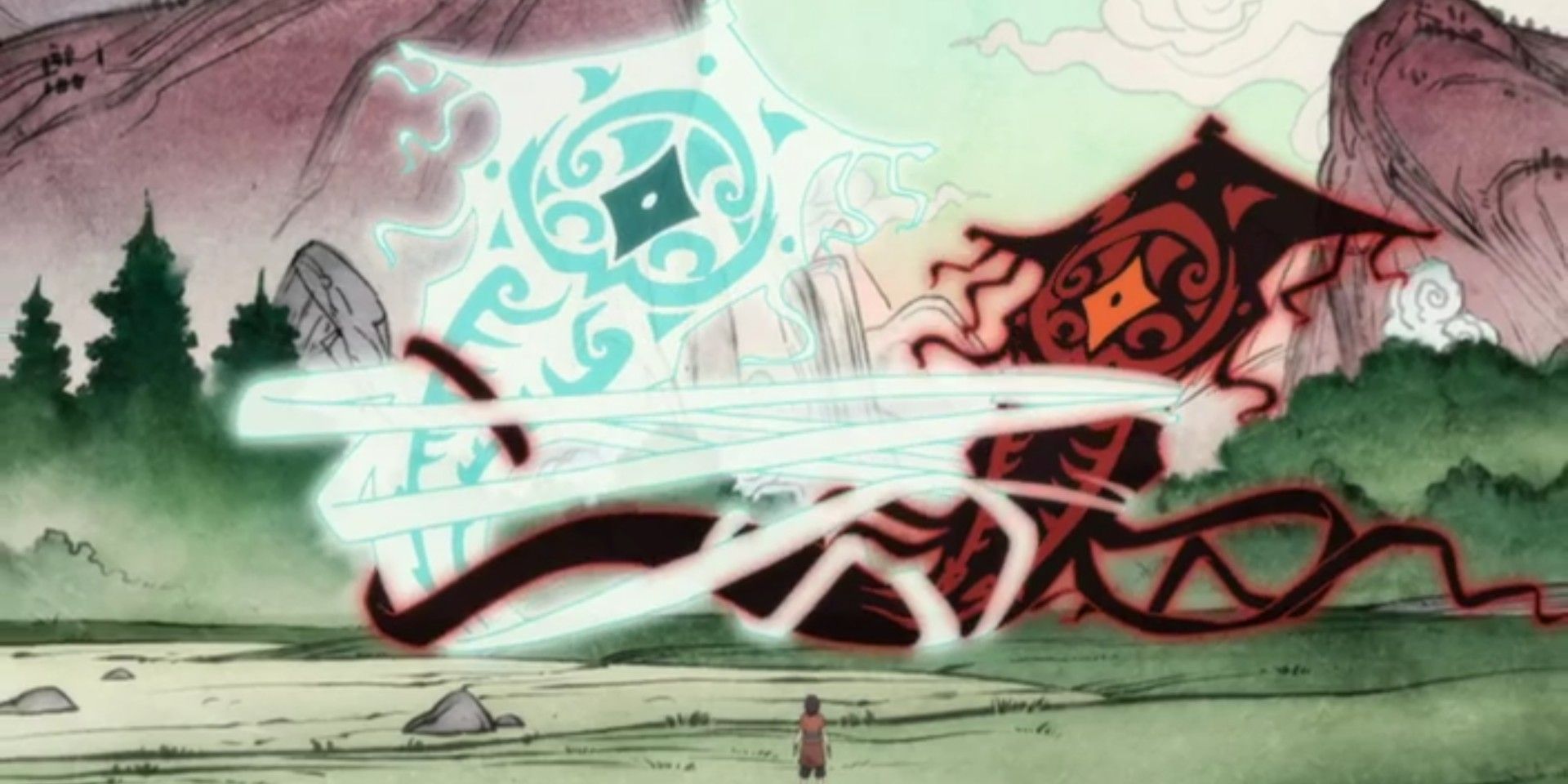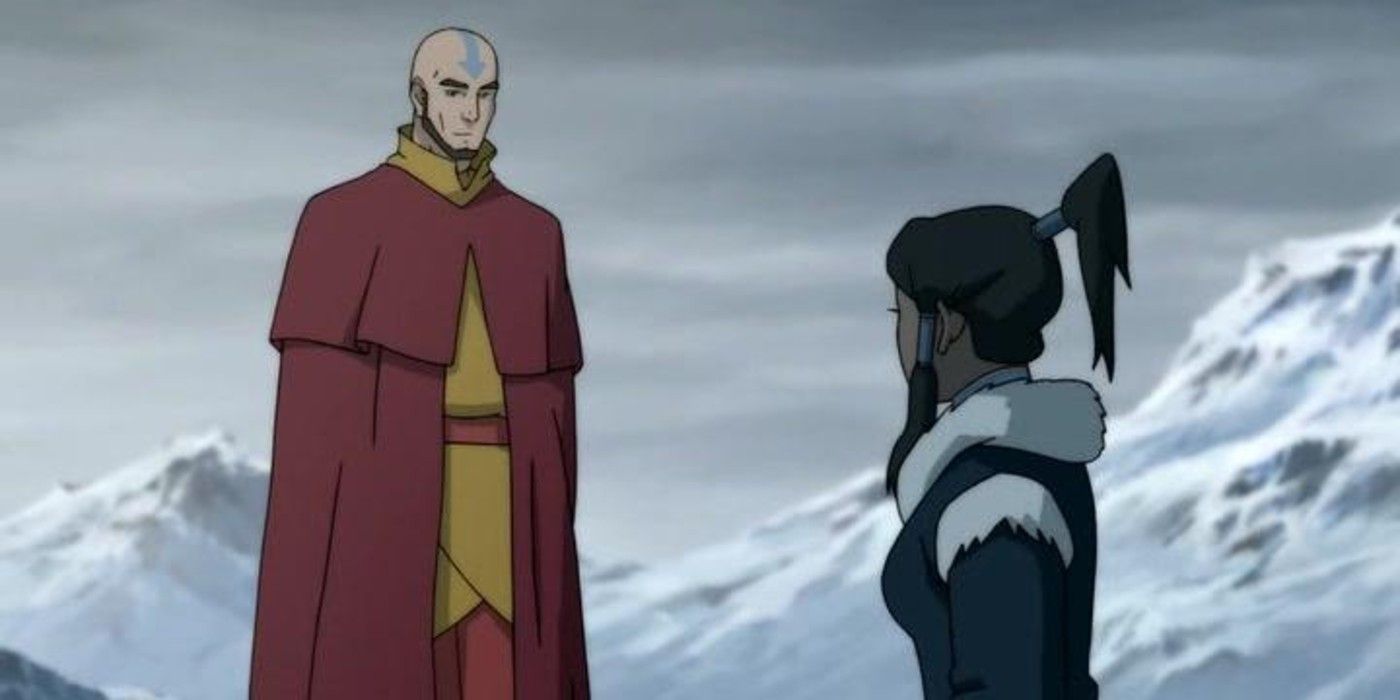The Legend of Korra is an incredibly divisive show for Avatar: The Last Airbender fans. That’s been a fact since the first season of Korra premiered in 2012, and one that’s likely to be made eminently clear again with its release on Netflix. With Avatar’s popularity at what seems like an all-time high since its own return to the streaming platform in May 2020, and many fans ready to watch the sequel series for the first time, or the first time in years, the debate looms once again. But why do so many Avatar fans hate The Legend of Korra?
The answer is complicated and multifaceted. The original series is one of the most universally praised TV shows of all time, animated or otherwise. Its shoes are nearly impossible to fill, and truly, Korra doesn’t really try to fill them. Despite being led by the same duo of Bryan Konietzko and Michael Dante DiMartino, the same composer in Jeremy Zuckerman, and many of the same writers and directors, the second show tries for very different things, leaving the look and feel of Avatar: The Last Airbender over a notably altered structure and tone.
These differences are the main points of contention for fans, and there are a few key ones that often draw particular ire, from The Legend of Korra's story and characters to how it changes what viewers know about Avatar: The Last Airbender. Here's why many fans have a problem with the sequel show.
The Legend of Korra Has No Single Overarching Story
This is one of the most common complaints about The Legend of Korra from Avatar: The Last Airbender fans. The first show was praised for its epic, sweeping story that spanned all three seasons, wrapping up nearly every plot and character arc beautifully and satisfyingly by the finale. The story of Avatar is singular: Aang must defeat the Fire Lord, and by the end of the series he’s done it. There’s a beautiful sense of scale and closure in that singularity that Korra admittedly lacks, opting instead to focus on seasonal plotlines, each with a different villain and theme.
There are a couple of reasons for this. Most notably, The Legend of Korra was commissioned by Nickelodeon season by season, meaning that the writers had to make the end of each season a potential ending to the show as well. The exception to this of course is seasons 3 and 4, which were ordered together, and therefore have a more cohesive arc between them (the importance of the Metal Clan, the focus on Earth Kingdom politics, etc.).
The other main thing keeping The Legend of Korra's arcs seasonal is the show’s focus on political and social ideologies as the foundations for many of its storylines. Each season and villain is meant to represent a specific response to the world’s growing modernism - Amon's devotion to equality between benders and nonbenders, Unalaq's desire for a spiritual renaissance, Zaheer's mission to create a world free from tyrants, and Kuvira's emphasis on security and order. Of course, each of these characters misses their mark in one way or another. While this unique structure leads to some great stories throughout Korra, it also makes the show’s conclusion far less grand and climactic than Avatar’s, and the flow between seasons feels more stiff.
Avatar: Why Korra Was A Better BENDER Than Aang
The Legend of Korra’s Characters Aren’t As Likable
The cast of Avatar: The Last Airbender is a collection of fully-formed, lovable, often hilarious characters, and the chemistry between them is exceptional in both their writing and performances. Following up the original Team Avatar is a challenging task in itself, and for many Avatar fans, The Legend of Korra’s characters just don't stack up.
From the show's beginning, The Legend of Korra tried to slot its new crew into the same roles as Avatar’s, which drew some unflattering comparisons. While Bolin’s comic relief hits a stride later in the show, particularly in season 3, he wasn’t on Sokka’s level. And Mako, for all his cool eyebrows and clutch lightning shots, felt flat compared to the complexity of Prince Zuko. As the series went on, these core characters found more original territory to explore, but it took a while for them to get there. And even then, it's tough to compete with the likes of Zuko, Iroh, Toph, and the rest of the original gang.
It also didn’t help that Korra’s characters mess up. In fact, they mess up a lot. The original show certainly had its fair share of teachable moments for the Gaang – Aang lying to Sokka and Katara about their father’s whereabouts to keep them from leaving him comes to mind – but these are usually small missteps, addressed by the end of a single episode. Korra is bullheaded and stubborn for half of the show, Mako’s constantly wishy-washy, Tenzin obsesses over his legacy to frequent faults, and the list goes on and on. However, a lot of this writing is intentionally difficult – an effort to craft more flawed and complicated characters. Over time, most of these issues are addressed in long-term storylines. But for a lot of fans, the payoff isn’t worth it.
The Legend of Korra “Ruins” Things About Avatar
This argument goes hand-in-hand with the last, as a lot of it focuses on the way The Legend of Korra changes characters from Avatar: The Last Airbender in retrospect. The most commonly cited instance of this is how Korra reveals that Aang was a pretty rotten father, who often neglected his two older, non-airbending children in an obsession with Tenzin and the future of the Air Nation. Some fans have celebrated this plotline for adding complexity and nuance to Aang’s character, and for addressing the stress he dealt with carrying the future of an entire culture. Others have criticized the choice for being out of character for Aang as he's shown in Airbender.
Toph’s portrayal in The Legend of Korra is similar, and has drawn similar critiques. Other common complaints include that Korra reveals too much specificity about the nature of the spirit world, bending, and the Avatar, and that the world itself is too altered and modernized from Avatar’s more traditional low-tech fantasy (albeit with tanks and giant drills). For many who fell in love with the beauty and mystique of Avatar’s world, seeing it filled with biplanes and mecha tanks and learning more about the nature of things like lion turtles polluted its elegance and magic.
The Legend of Korra Is A More Ambitious Show Than Avatar
Make no mistake: Avatar: The Last Airbender is a masterpiece, but its excellence comes largely from taking a very traditional narrative structure and perfecting it. It’s a series that broke major ground for female characters in action shows, differently-abled characters, and characters of color. And it effectively tackled hard ideas like nationalism, classism, refugee crises, and trauma, while always remaining, at its core, a kids show. But in its form, Avatar takes very few risks. Aang and Zuko are exceptional for how they are written, but the broad strokes of their journeys are still those of the Hero’s Journey. As a villain, Ozai offers very little complexity, outside of the way he is used to discuss child abuse and authoritarianism. Avatar's overarching story, while brilliantly executed, stays within a classic formula.
This isn't a bad thing. Rather, it's one of Avatar's strengths. With The Legend of Korra, Konietzko and DiMartino tried for something more risky. Korra’s characters are muddy and complicated, even the Big Bads. The heavier themes present in the background of Airbender come to the forefront in Korra, with active discussions of representation, industrialization, capitalism, class, parenthood, corruption, PTSD, and a lot more. These ideas are present in Avatar, but they're explored further in Korra through a larger cast of older characters.
Unfortunately, not all of it works. The show tries to handle a massive amount in even less time than Avatar: The Last Airbender had (52 episodes instead of 61), and while moments like Korra’s season 4 recovery arc and season 1’s infamous boat scene hit hard and effectively, a fair amount of what the show tries to do is either rushed for lack of time, undercut by other plotlines, or just left a little wanting in its execution. There is inherent merit in The Legend of Korra's attempt to cover so much ground, but it is, ultimately, a much messier show for it. For many fans, that messiness made it an unworthy successor to the incredibly tight and cleanly told story of Avatar: The Last Airbender.
Why Legend of Korra Is BETTER Than Avatar: The Last Airbender

